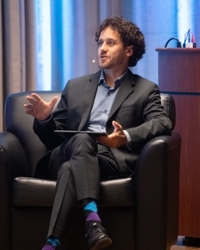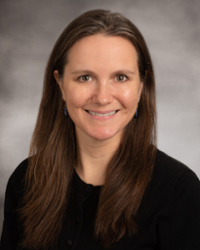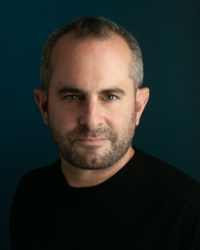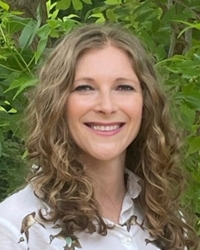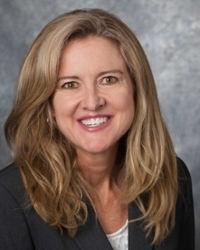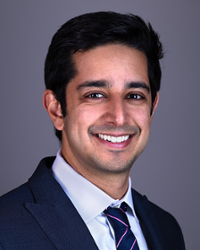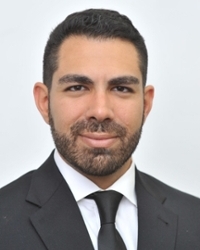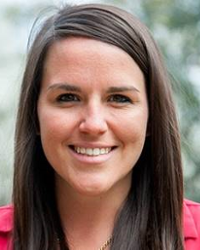MOSAIC: Psychedelics and Religious Traditions

MOSAIC is an interdisciplinary initiative investigating the role of psychedelics in the lives of people from diverse religious backgrounds, and the ways in which religion shapes attitudes toward psychedelics. MOSAIC projects use a range of methods across the sciences and humanities, involving different populations and a variety of study designs. These projects include studies of the phenomenology of psychedelic experiences; explorations of spiritual, existential, religious, and theological (SERT) dimensions of psychedelics; attitudes toward psychedelics among different communities of faith; and the needs and challenges faced by religious communities as the use of psychedelics increases.
A Pressing Need
The MOSAIC initiative meets two significant needs: providing culturally competent, beneficial care to psychedelic experiencers; and informing the ongoing debates surrounding the use of and access to psychedelic compounds. As psychedelic use increases and medical and legal frameworks shift to accommodate a variety of psychedelic uses, these needs are expected to soon grow exponentially.
In psychedelic contexts, SERT experiences may arise intentionally or unintentionally; they may be welcome or unwelcome; they may be theistic or non-theistic, unitive or non-unitive, personal or non-personal. Data suggest that SERT experiences are linked with psychedelics’ positive impacts for healthy individuals and those who seek treatment for mental health needs. Clinicians, scholars, and community practitioners have called for guidance for working with these kinds of experiences, yet we know relatively little about the range of SERT experiences, their relationships to religious frameworks, and their implications for how religious communities relate to psychedelic medicine and spiritualities.
The MOSAIC initiative meets these needs.
Our Mission
The Emory Center for Psychedelics and Spirituality is an interdisciplinary center that includes scientists, clinicians, humanities scholars, and clergy. Our mission is to help all individuals receive effective, safe, culturally competent, and compassionate psychedelic care, with particular attention to religious and spiritual aspects.
We are mindful of the ways in which psychedelic care has sometimes, even despite best intentions, fallen short of this ideal, particularly with respect to historically marginalized communities, indigenous communities, and those without economic means to access psychedelic care. This motivates our value of community partnership and community-engaged research. We also seek to inform the psychedelic field by including the insights of scholars of religion, clergy, spiritual health practitioners, and religious individuals. Our work is evidence-based, acknowledging that evidence includes a range of methods, modalities, histories, and ways of knowing.
Our funders and partners include Emory University, Common Era, the Harvard Study of Psychedelics in Society and Culture, and the River Styx Foundation.
Explore our Current Projects, Projects in Development, Selected Relevant Publications, and People associated with MOSAIC.
Muslim experiences of psychedelics and their impact on faith, integration, and culture
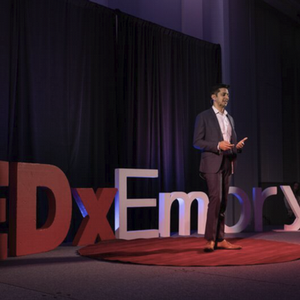
Although Muslims are on track to be the second-largest US religious group by 2040, they are systematically under-represented in research on psychedelics. Given the centrality of SERT experiences for many who use psychedelics, omitting the nature and implications of these experiences for Muslims undermines the extent to which clinical practices based on current research will be spiritually responsive to Muslims individuals and communities. This project seeks to understand Muslim perspectives, experiences, and needs concerning psychedelics in order to inform inclusive and spiritually responsive clinical and social frameworks for psychedelics. This project includes three components: (1) a qualitative survey, Attitudes of Muslim Americans toward psychedelics (published); (2) a mixed-methods study of how psychedelic experiences are understood, felt, and integrated into the lives of Muslims (data Collection Complete; manuscript submission in latter part of 2025); and (3) attitudes of Muslim clergy and professionals toward psychedelics and integration into faith (projected 2026).
Key personnel: PI: Fayzan Rab, MD; Co-I: Ali John Zarrabi, MD; Co-I: Salman Ahmad, MA; Co-I: Roman Palitsky, MDiv, PhD
Jewish Journeys

Co-designed with stakeholders in the Jewish community, this study aims to evaluate the attitudes, knowledge, and exposure to psychedelics among a diverse range of Jewish Americans (N =1500), most notably those currently undeserved by Jewish communal and institutional life. It will also include a needs assessment around psychedelics, which entails challenges, needs for cultural and religious competency, and tensions or gaps in knowledge concerning psychedelic use for broad applications and settings. The Emory Center for Psychedelics and Spirituality has partnered with Shefa, a non-profit organization dedicated to providing psychedelic-related support in the Jewish community, for this study, funded by Common Era.
Key personnel: PI: Roman Palitsky, MDiv, PhD; Co-I: Rabbi Zac Kamenetz
Christian Clergy Study
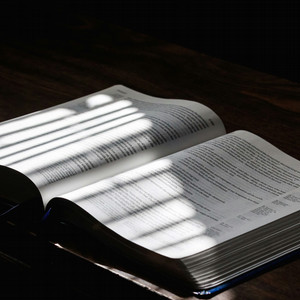
The Christian Clergy, currently underway, is a qualitative study of Christian clergy to obtain a baseline level of attitudes toward psychedelic uses. Participants are drawn from a representative sample of denominational and ideological affiliations, and include individuals with psychedelic experience as well as those without it. After this study is complete, we intend to conduct a larger-scale study of a diverse range of Christian Americans (N=1500) to assess current attitudes and needs.
Key personnel: PI: Roman Palitsky, MDiv, PhD; Co-I: Rev. Jaime Clark-Soles, PhD; Co-I: Rabbi Jay Michaelson, PhD.
Former Latter Day Saints’ Psychedelic Experiences

Those who leave the Latter Day Saints community experience challenges associated with losing a tightly knit yet global community and spiritual support system. These challenges often include spiritual distress, coupled with exploration of spiritual and existential beliefs. Members of the former LDS community have reported experiencing considerable benefits and restoration in their spiritual life after taking psychedelics. This qualitative study examines the characteristics and variety of former LDS members’ psychedelic experiences, and their significance for their ongoing relationship with spirituality and religion. This study is co-developed by ECPS and Dr. Peter Leavitt, PhD, a member-stakeholder in the former latter day saints community.
Key personnel: Co-PI: Peter Leavitt, PhD; Co-PI: Roman Palitsky, MDiv, PhD
The Role of Spiritual Health practitioners (chaplains) in psychedelic assisted therapy
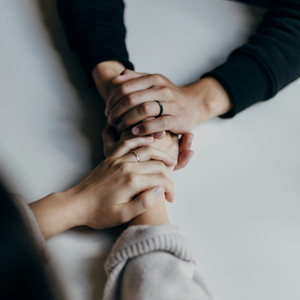
This qualitative study found that spiritual health practitioners’ roles include addressing non-ordinary states of consciousness, holding space, counter-balancing biomedical perspectives, bringing awareness to power dynamics, and contributing to an interdisciplinary care team. Spiritual health practitioners are trained to work with spiritual/religious material, and often possess generalizable therapeutic skills of value in PAT contexts; board certified chaplains hold masters level education and 3600 clinical and educational hours. Such individuals should have formation (not just training) as spiritual/religious leaders. This work has contributed to the formation of the Transforming Chaplaincy Psychedelic Care Network (Rush University, Drs. Stephen Lewis and Bonnie Glass Coffin; co-founded by Dr. Jamie Beachy and Rev.. Caroline Peacock) and a series of workshops on “Tending the Spiritual in Psychedelic Care” at Harvard Divinity School (Dr. Roman Palitsky and CP): Weekend workshops on clinical and communal settings.
Key personnel: Rev. Caroline Peacock, DMin, LCSW
The Varieties of the Psychedelic Spiritual Experience

ECPS has begun work on an anthology of psychedelic SERT experiences, based on interviews with experiencers from diverse religious and cultural backgrounds. This book will offer primary sources that illustrate the broad range of such experiences, offering a broader array of experiences than found in frequently used models such as the Mystical Experience Questionnaire. The anthology will be aimed at a general readership and, in addition to showing the remarkable breadth of such experiences, is intended to broaden scholarly understanding of the variation among them.
Key personnel: Co-Pl: Rev. Caroline Peacock, DMin, LCSW; Co-Pl: Rabbi Jay Michaelson, PhD; Co-I: Roman Palitsky, MDiv, PhD
Ecological Studies of Psychedelic Experience: Daily experiences in naturalistic settings

This ongoing study seeks to understand how individuals’ moment-to-moment experiences are impacted by psychedelics. We have developed the first ecological momentary assessment (EMA) protocol for the study of psychedelics; this study is the validation of that protocol, and an investigation of the changes that psychedelics produce in individuals’ daily lives. Participants (n = 50) who already plan to take psilocybin on their own are recruited and invited to provide EMA data for 5 days prior, and 5 days after using psilocybin. EMA questions assessing feelings, thoughts, behaviors, and spiritual experiences are asked 3 times per day, generating 30 longitudinal data points per item per participant. In addition, novel and validated measures evaluate context, set, setting, and pre-post impacts on mood and wellbeing. We propose that the framework used in this study can be expanded to maintain an ongoing, growing repository of naturalistic psilocybin use that will enable engagement with a multitude of research questions.
Perceptions of psychedelic therapy in Black Americans
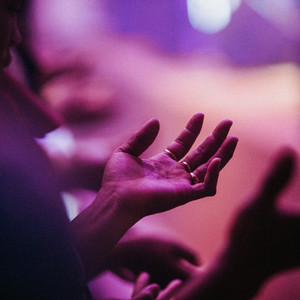
This study focuses on mixed-methods work investigating views and barriers to psychedelic treatment in Black Americans. We have conducted focus groups and a national survey which has found that religion and spirituality is an important consideration for many individuals in this community when considering psychedelic therapy. We propose to continue this work via engaging in community outreach and continued work related to views and incorporating spirituality within culturally informed treatments.
Key personnel: Co-PI, Jessica Maples-Keller; Co-PI: Sierra Carter.
Buddhism, Meditation, and Psychedelics
It’s conventionally understood that meditation, and in particular Buddhist-derived mindfulness meditation, is of aid to psychedelic experiencers. Yet little clinical research has been done to support this, and there is no standard practice for mindfulness in psychedelic contexts. In addition, there has been only sporadic exploration of the roles psychedelics may have played in (Tibetan) Buddhism, as well as a handful of popular volumes by contemporary Western practitioners. Further, traditional Buddhist practitioners are often excluded from this conversation in favor of contemporary Western practitioners. There is a gap in scholarship and clinical practice when it comes both to Buddhism specifically and meditation more generally.
Spiritual experience and prosocial action: Behavior change after psilocybin-induced spiritual experiences in religious and secular settings
Do spiritual experiences make people more religious and, in a measurable way, more prosocial? The “psychedelics revolution” has spurred an upswelling of new religious movements (Lutkajtis, 2020) and growing engagement from established denominations (Cole-Turner, 2022; Margolin, 2021; McCarthy, 2023; Slatter, 2024; Zare & Williams, 2024). It also provides unprecedented opportunities to study the social consequences of spiritual experiences, which historically have been difficult to investigate empirically. The proposed research will use naturalistically- assessed, real-world behavioral data to empirically evaluate how psychedelic-induced spiritually meaningful experiences do, and do not, contribute to social action. Using (1) a suite of cutting-edge ecological assessment technologies and (2) a corpus of existing data from a trial of psilocybin (n = 141) that will be supplemented with additional data from psilocybin use in religious settings (n = 20), the proposed project will (3) test the hypothesis that psilocybin-induced spiritual experiences are more likely to lead to prosocial effects when they occur in religious settings.
The Lexicon of SERT Experiences in Daily Life
Understanding the real-world behaviors associated with SERT experiences has been an elusive goal in social scientific and humanistic religion research. The challenge is that individuals often self-report qualities that are difficult to corroborate in their daily life, such as prosociality, and that their reporting is often biased by the mere act of asking them about their experiences. ECPS will use a cutting-edge method, already used in other studies at ECPS and around the world, the Electronically Activated Recorder (EAR), to collect audio data from participants’ daily lives, collected via a smartphone app. This naturalistically-assessed audio includes behaviors from individuals’ daily lives, including speech and verbal interactions. By examining existing data representing hundreds of hours of recordings from clinical trials, as well as novel, targeted data collected from psychedelics studies, we propose to develop a coding system and language dictionary that can assess various SERT-relevant behaviors and accounts of experiences in daily life. This framework would enable future research to anchor reported SERT experiences to actual, observable behaviors.
Psilocybin-Assisted Therapy for Demoralization in People Living with Life-Threatening Illness
People living with life-threatening diseases, like advanced cancer, lung disease, and kidney disease, often cope with physical, emotional, social, and spiritual stressors. One spiritual/existential condition that is particularly prevalent in people living with serious illness is demoralization syndrome. Demoralization is characterized by hopelessness, helplessness, and a failure to cope with their current situation, such as their life-threatening disease, and is associated with severe depression and increased suicidality. There are no approved medications for demoralization, and talk therapies alone have shown only modest benefit at reducing its severity. In 2024, Emory completed its first investigator-initiated trial studying psilocybin-assisted therapy using the “triad model” of care (patient-mental health clinician - spiritual health clinician) with promising results. We propose to advance this work by testing the efficacy of psilocybin-assisted therapy using the triad model compared to usual care through a randomized controlled trial (RCT). This therapy holds great propose for chronically and seriously ill people who are suffering by providing a medication-assisted psychotherapeutic pathway to find meaning, purpose, hope, and resilience to cope with their medical illness.
Ecological-naturalistic study of religious community use of psychedelics
Psychedelics are a meaningful aspect of spiritual practice for a variety of religious communities. These non-clinical applications of psychedelics take place within the context of these religious communities’ traditions, structures, and social environments. We propose to partner with existing communities that make use of psychedelics, implementing a diverse toolkit of assessment and research methods, to evaluate and describe the spiritual use of psychedelic compounds as it takes place ecologically within existing communities. Eschewing a reductively biomedical approach while maintaining rigorous research standards, this community-collaborative research intends to generate useful information about psychedelics use in religious communities, including community perspectives and practices, socioecological changes, and benefits or harms, that take place for stakeholders in such settings.
Anthology of facilitators' experiences with NOSCs and Unusual Experiences
While the use of psychedelic compounds in PAT is relatively recent, their use in indigenous communities dates back hundreds or perhaps thousands of years, and their use in Western ‘underground’ contexts is now almost a century old. In addition, while the Western medical model does not have a theology or metaphysics that accommodates NOSCs, evidence suggests that NOSCs and SERT experiences may influence the outcomes of PAT. To help facilitators in clinical settings learn from the depth of experiences of underground and indigenous facilitators, this planned anthology will collect interviews from two dozen facilitators and focus on the most unusual experiences (positive and negative) that experiencers reported and how they worked with them.
Entity Encounters in Psychedelic Experience
Until recently, it was an ‘open secret’ that psychedelic experiencers frequently encounter entities who appear to them to be human, divine, alien, angelic, supernatural, energetic, non-human animal, or utterly novel. Some are theorized within experiencers’ religious traditions (e.g. angels, demons, djinn, goddesses, ancestors) and some are not; some are benevolent and others are not. Moreover, many experiencers report that the most powerful insights they received in their experiences came from these entities. Yet rigorous study of these experiencers, and how they are understood by experiencers, remains limited. ECPS has already collected a considerable amount of data regarding these experiences and is developing a study to analyze them.
- Peacock, C., Mascaro, J. S., Brauer, E., Zarrabi, A. J., Dunlop, B. W., Maples-Keller, J. L., Grant, G. H., Raison, C. L., Rab, F., & Palitsky, R. (2024). Spiritual health practitioners’ contributions to psychedelic assisted therapy: A qualitative analysis. PLOS ONE, 19(1), e0296071. https://doi.org/10.1371/journal.pone.0296071
- Palitsky, R., Kaplan, D. M., Peacock, C., Zarrabi, A. J., Maples-Keller, J. L., Grant, G. H., Dunlop, B. W., & Raison, C. L. (2023). Importance of Integrating Spiritual, Existential, Religious, and Theological Components in Psychedelic-Assisted Therapies. JAMA Psychiatry, 80(7), 743–749. https://doi.org/10.1001/jamapsychiatry.2023.1554
- Palitsky, R., Kaplan, D. M., Perna, J., Bosshardt, Z., Maples-Keller, J. L., Levin-Aspenson, H. F., Zarrabi, A. J., Peacock, C., Mletzko, T., Rothbaum, B. O., Raison, C., Grant, G. H., & Dunlop, B. W. (2024). A Framework for Assessment of Adverse Events Occurring in Psychedelic Assisted Therapies. Journal of Psychopharmacology
- Rab, F., Ahmad, S., Palitsky, R., Zarrabi, A. J. (2025) Attitudes toward Psychedelics among Muslims living in the United States have towards psychedelics.
- Carter, S., Packard, G., Coghlan, C., George, J. R., Brown, A. J., Ching, T. H., ... & Maples-Keller, J. L. (2023). Perceptions of psychedelic-assisted therapy among Black Americans. Journal of Mood & Anxiety Disorders, 4, 100023.
- Carter, S., Packard, G., George, J.R., Ching, T.H.W., Palitsky, R., Maples-Keller, J.L. Barriers and predictors of views of psychedelic-assisted therapy within Black Americans.
- Carter, S., Packard, G., Maples-Keller, J.L. Qualitative investigation of urban, Black American’s views of MDMA and psilocybin assisted therapy.
- “Psychedelics, the Bible, and the Divine.” In the Special Issue of Religions devoted to “Theology and Science: Loving Science, Discovering the Divine.” Religions. 15, no. 5 (May 2024). https://doi.org/10.3390/rel15050582
- Palitsky, R., Canby, N., van Dam, N., Levin-Aspenson, H., Kaplan, D., Maples-Keller, J., Raison, C. L., Grant, G. H., Dunlop, B. W., Britton, W. B. (2024) Leveraging meditation research for the study of psychedelic-related adverse effects. International Review of Psychiatry
- Bosshardt, Z., Maples-Keller, J. L., Kaplan, D.M., Rothbaum, B., Eisenacher, S., Dupree Jones, K., Mletzko, T., Grant, George H., Dunlop, B. W., Zarrabi, A.J., Palitsky, R. (2024) Reading the Crowd: attitudes toward psychedelics and psychedelic therapies among attendees at a conference. Psychedelics
- Bosshardt, Z., Maples-Keller, J. L., Kaplan, D.M., Rothbaum, B., Eisenacher, S., Dupree Jones, K., Mletzko, T., Grant, George H., Dunlop, B. W., Zarrabi, A.J., Palitsky, R. (2024) Reading the Crowd: attitudes toward psychedelics and psychedelic therapies among attendees at a conference. Psychedelics. DOI: 10.61373/pp024r.0040
- Davis, K., Palitsky, R., Dunlop, B. W., H. Grant, G., & Zarrabi, A. J. (2025). Psychedelic Ethics in Palliative Care. The American Journal of Bioethics, 25(1), 95–98. https://doi.org/10.1080/15265161.2024.2433457
- Michaelson, J. (2025) Complexifying Psychedelic ‘Mysticism’: Analytical, Clinical, and Legal Consideratioons.Canopy Forum, Oct. 2025.
- Palitsky, R., Maples-Keller, J., Peacock, C., Dunlop, B. W., Mletzko, T., Raison, C. L., Grant, G. H., Chao, S., Shub, I., Mendelbaum-Kweller, M., Smolyar, L., Kaplan, D. M., Rothbaum, B., Zarrabi, A. J. (2024) A critical evaluation of psilocybin-assisted therapy protocol components from clinical trial patients, facilitators, and caregivers. Psychotherapy
- Palitsky, R., Canby, N., van Dam, N., Levin-Aspenson, H., Kaplan, D., Maples-Keller, J., Raison, C. L., Grant, G. H., Dunlop, B. W., Britton, W. B. (2024) Leveraging meditation research for the study of psychedelic-related adverse effects. International Review of Psychiatry
- Palitsky, R. & Grant, G. (accepted) Looking back to go forward: a study of psilocybin with clergy heralds new research directions for deepening our understanding of psychedelics and spirituality. Psychedelic Medicine
- Palitsky, R., Captari, L., Maples-Keller, J. l., Peacock, C., Rupert, D., Kaplan, D., Stavros, G., Grant, G., Sandage, S. (accepted) Applying relational spirituality to develop spiritual and religious competencies in psychedelic-assisted psychotherapy training. Invited submission to Psychotherapy
- Pasricha, I., Peacock, C., Palitsky, R., Clark-Soles, J., Maples-Keller, J. L., Grant, G. H., & Kaplan, D. M. (2025). What motivates spiritual health practitioners in psychedelic-assisted therapy? A qualitative study and implications for facilitator training practices. Psychedelics, 1(2), 31-39. https://www.doi.org/10.61373/pp025r.0008
- Perna, J., Trop, J., Palitsky, R., Bosshardt, Z., Valentine, H., Dunlop, B. W., Zarrabi, A-J. (2024) Prolonged Adverse Effects from Repeated Psilocybin Use in an Underground Psychedelic Therapy Training Program. BMC Psychiatry
- Perna, J., Trop, J., Palitsky, R., Bosshardt, Z., Valentine, H., Dunlop, B. W., Zarrabi, A-J. (in press) Prolonged Adverse Effects from Repeated Psilocybin Use in an Underground Psychedelic Therapy Training Program. BMC Psychiatry
- Clark-Soles, Jaime. Psychedelics and Soul Care: What Christians Need to Know (Grand Rapids, MI: William B. Eerdmans, in preparation).
- Shub, I., Ajibola, S., Chao, S., Mendelbaum-Kweller, M., Smolyar, L., Zarrabi, A. J., Palitsky, R. (in preparation) A network analysis of subjective sequences contributing to different outcomes in psilocybin therapy.
